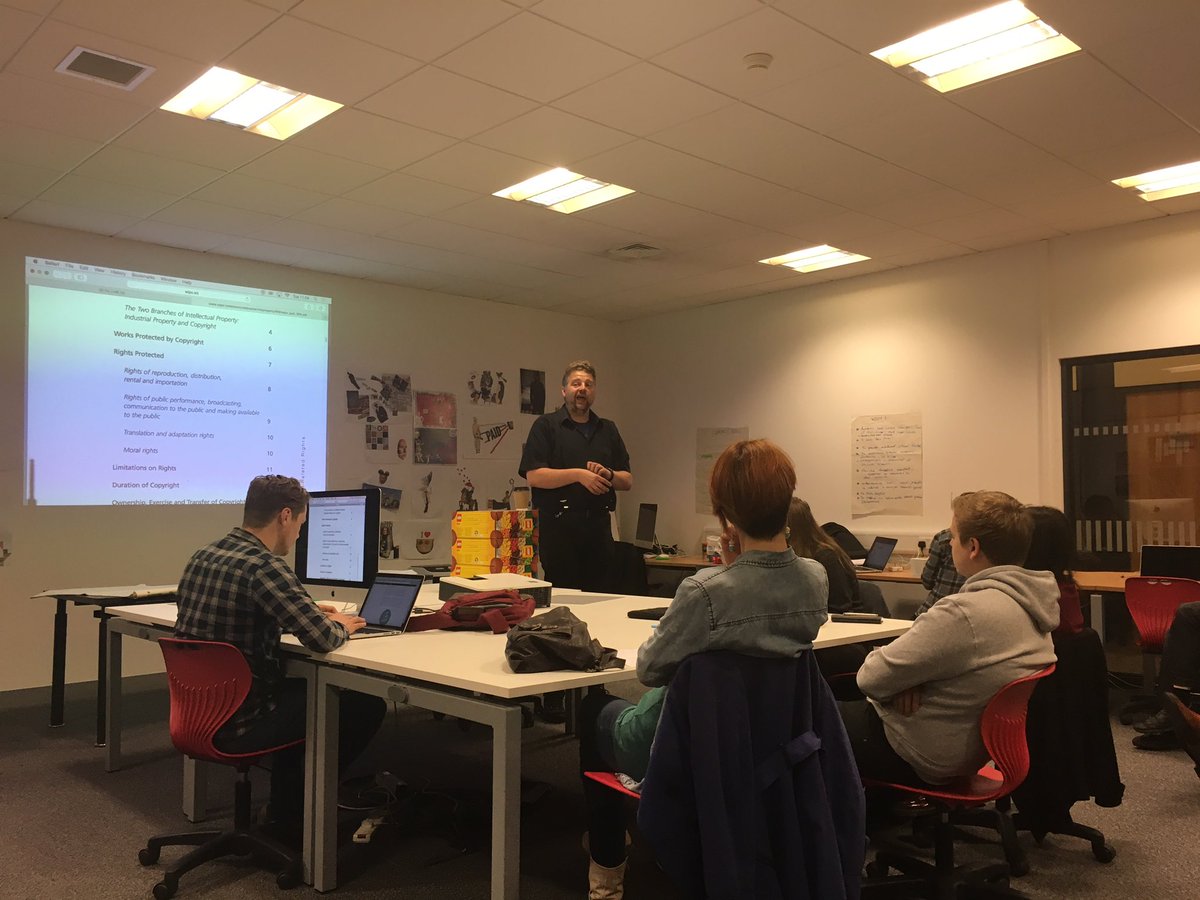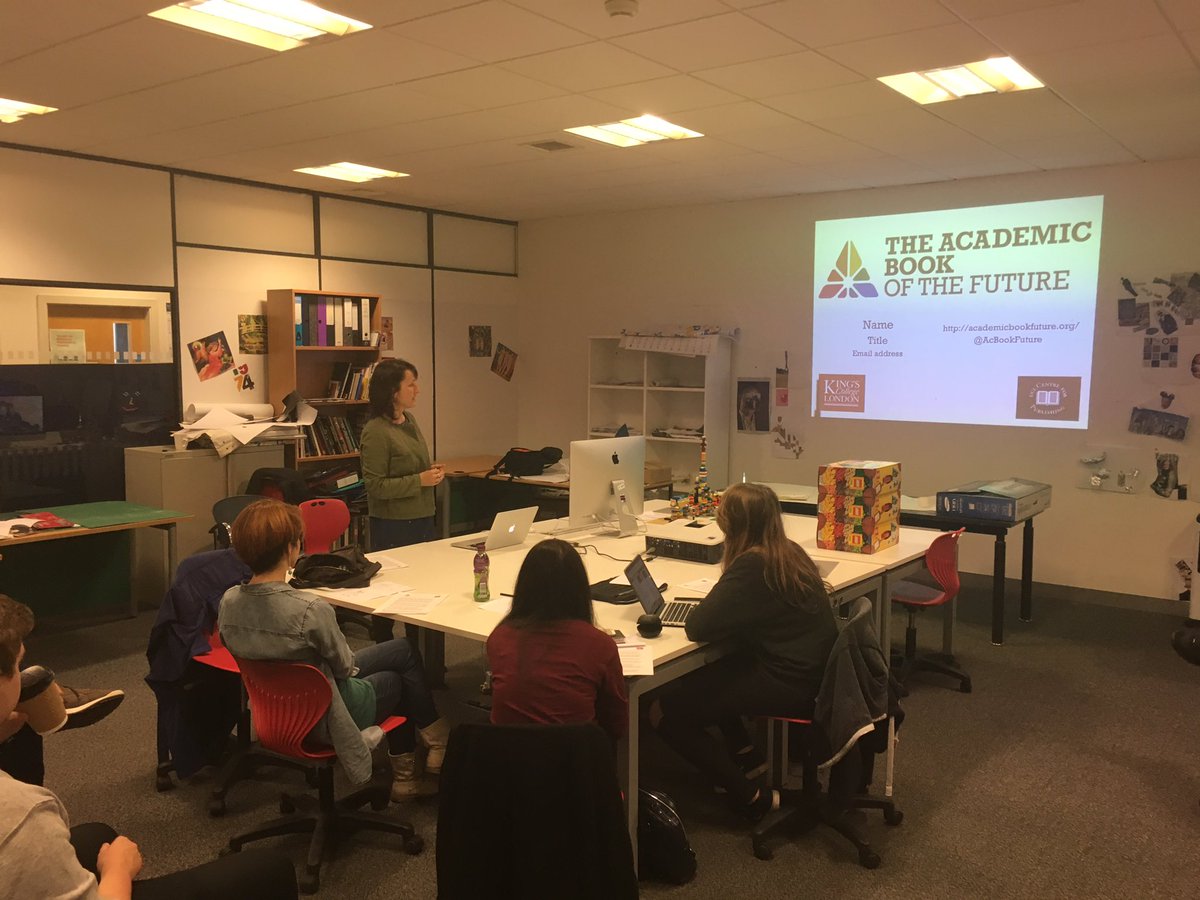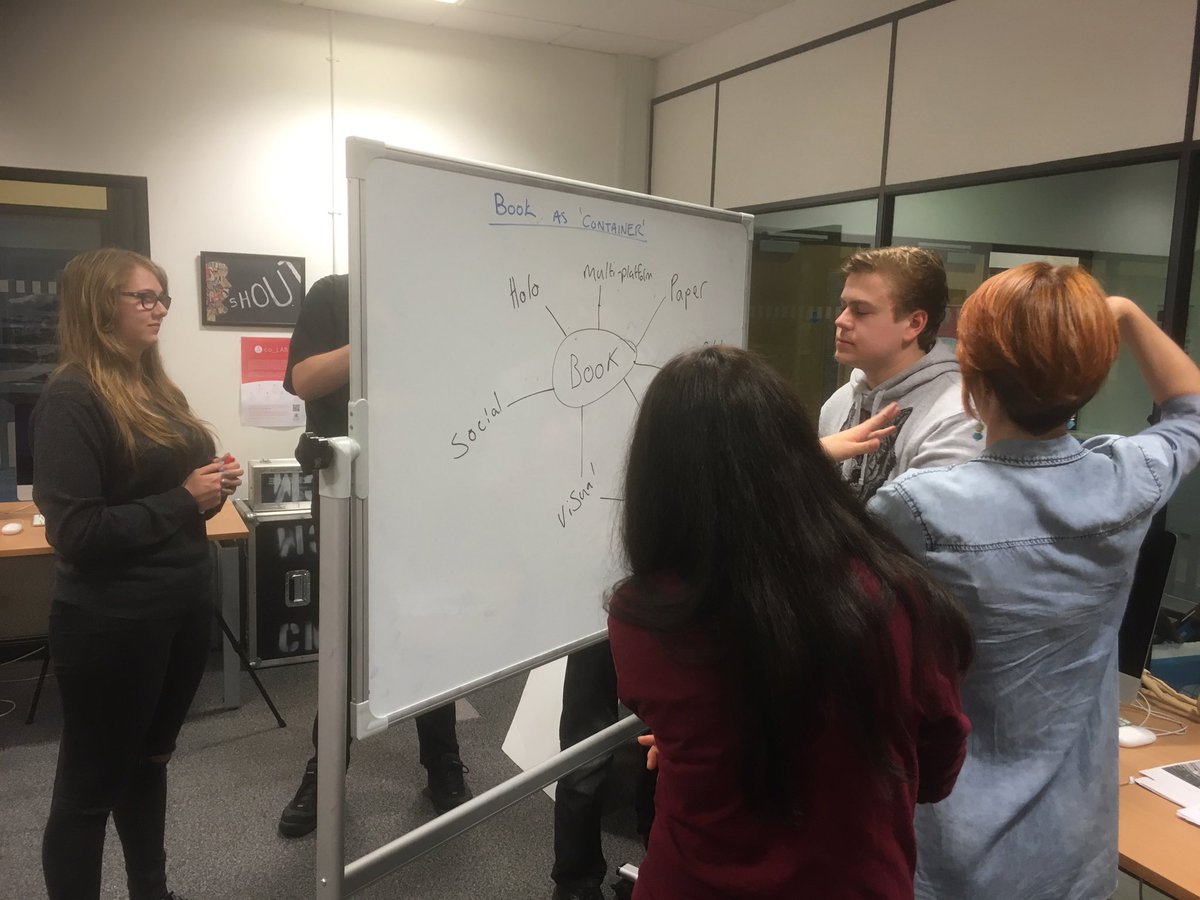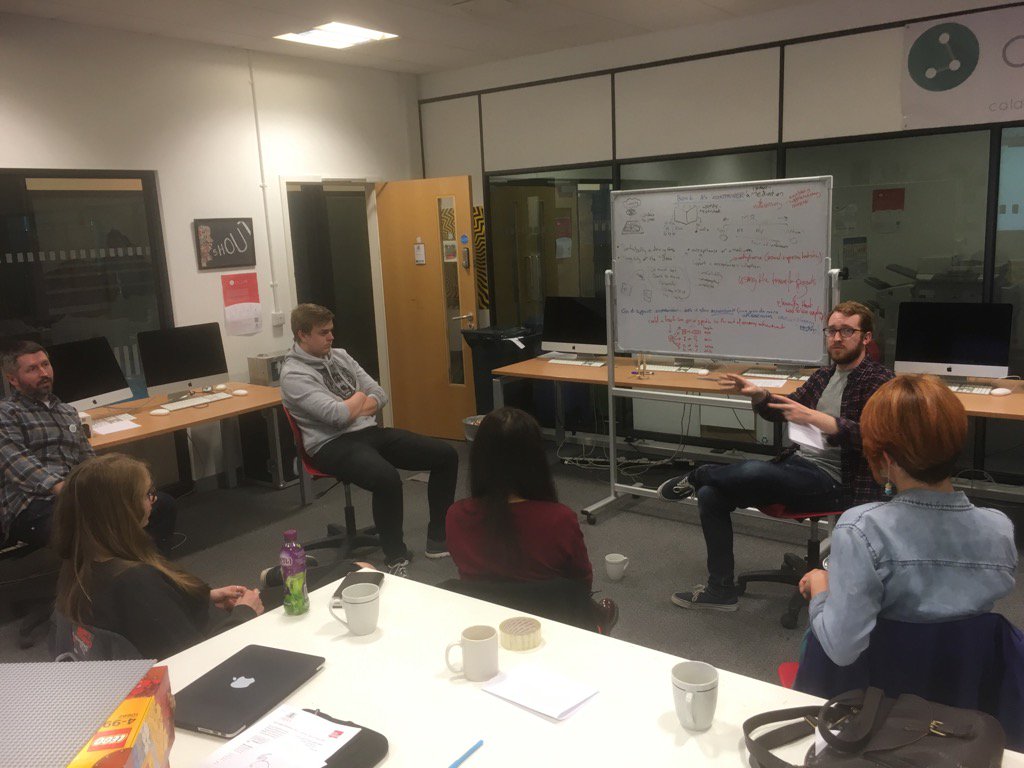We began the day with a series of physical exercises to get our minds active and to expand on some of the ideas we have been discussing about different learning styles. We find that we spend most of our time sat down (either facing screens or talking around a table), therefore it’s important to break from this, not only for physical benefits, but to get a fresh perspective on the way we collaborate. We played a series of improv ‘games’ that got us out of our chairs and engaging with one another, with each activity having a metaphorical lesson at its core. A game about trust, teamwork and acceptance, another about how our brains are wired according to logic and creativity, and finally the (now infamous!) 12 part handshake game, teaching us that peer-to-peer collaboration can help to produce creative outputs that can exceed the sum of their parts.

One of the participants of the workshop, Patrick Deters, is a visiting lecturer from The Hague University of Applied Sciences (an LSFM Erasmus exchange partner). In addition to providing an international academic perspective to the workshop, Patrick also presented an overview of copyright and intellectual property laws, which was followed by a discussion about the creative and collaborative potential of Open Access publishing, Copyleft and Creative Commons licences.

Dr. Sarah Barrow, who is on the Advisory Panel for The Academic Book of the Future, came into the lab to provide some context for the key aims and objectives of the the broader AHRC-funded research project. The Academic Book of the Future is currently in its second phase of a two-year cycle, which is focussed on facilitating conversations with and between all stakeholders of the academic book (including academics, publishers, librarians, booksellers and policy-makers). As part of this process, support has been given to institutions from across the UK (including UoL) to interrogate current and emerging issues around the academic book and its contexts:
- What is an academic book?
- Who reads them?
- What do scholars want from academic books?
- What can technology do to help make academic books more accessible?
- How can we make sure academic books, whether print or electronic, are kept safe, and preserved effectively?
- What has changed over recent years, and what is still changing?
- What new challenges and opportunities do librarians, publishers, booksellers, and academics face?

The afternoon saw us exploring the potential ‘forms’ that the book of the future might take. To support this process, we returned to a suggestion made yesterday by Dr. Duncan Rowland, a participant from the School of Computer Science. Duncan proposed that the book is a combination of two things – a container and its contents (i.e. Book = Container + Content). This presented an interesting way of defining the particular issues we will be addressing in the ideation phase of the workshop by thinking about the academic book as a medium (container) for transmitting new knowledge (content). This saw us focus on the potential multi-media/multi-platform/multi-sensory properties and functionalities that the book of the future might embody.

Another aspect of the workshop is to explore the themes of Academic Book of the Future through a case study/live brief of an actual book (an edited collection of academic essays entitled The Neurotic Turn: Interdisciplinary Correspondences on Neurosis, which has a print publishing contract with Repeater Books). This will represent the ‘content’ to populate our designs with, and to explore how this might be disseminated and made accessible to a variety of readers. The editor of this book, Charlie Johns, came in to speak about how the themes of this book (how forms of knowledge are produced or constrained through neurosis) might be useful for thinking through our own experiences of learning and the role of the book in the future.
